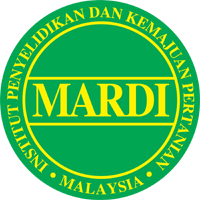M. Nur Ilida and M.S. Faridah
Abstract
A study was conducted to determine the prevalence of Campylobacter jejuni in raw chicken (fresh and chilled), marinated raw chicken (fresh and chilled) and chicken based products (frozen) from wet markets and supermarkets in Hulu Langat area. Samples were collected randomly for 8 months from February–September 2007. Isolation of C. jejuni was done using conventional methods in which 25 g of each sample was homogenized with 225 ml of Bolton Broth (supplemented with Bolton Broth Selective Supplement and Laked Horse Blood) and incubated in microaerophilic condition at 37 °C for 4 h followed by 42 °C for 48 h. Samples were then streaked onto Campylobacter blood-free selective agar base supplemented with CCDA selective supplement and was incubated at 42 °C for 48 h. Final confirmation was carried out using CAMP-ID, the Campylobacter identification system which comprises three biochemical tests for the presumptive identification of thermophilic Campylobacter spp. Results showed that C. jejuni can be found in various parts of fresh and chilled raw chicken meat such as the breast, wings, thigh, neck, vent, liver, gizzards and feet. Analysis done on marinated raw chicken meat and frozen chicken-based products (chicken nuggets, burger, frankfurter, chicken meat ball, chicken mosaic and minced chicken)showed the absence of C. jejuni.
Full Text (134 KB)








